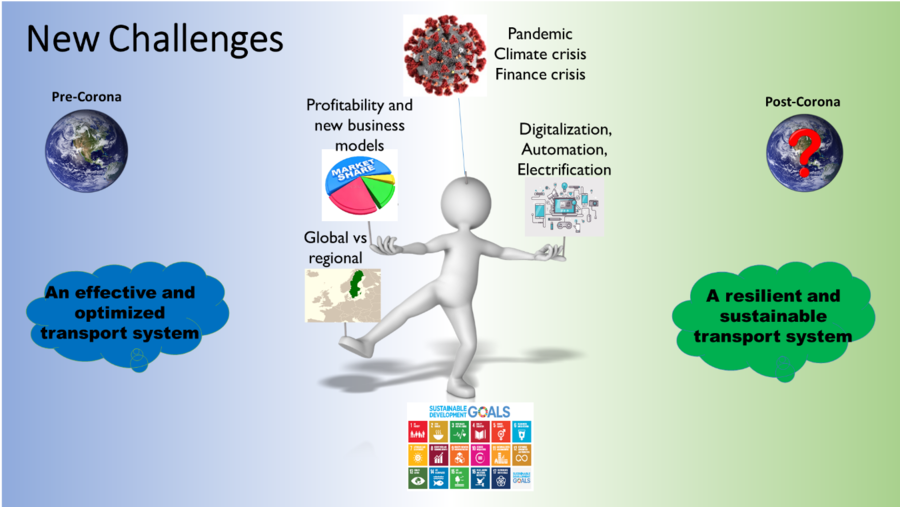Resilient E2E

With the vision of a sustainable and resilient transport system, the pre-study examines the effects of COVID-19 on the transportation system. The aim is to utilize the learnings from the pandemic for developing dynamic system models which can serve as a basis for future strategies and policies to strengthen the freight transport and logistic system.
The effects of the pandemic have been both positive and negative with varying scale of severity for different actors within the logistics industry. On one hand a lot of vulnerabilities have been exposed and on the other hand the pandemic has shown the possibilities of adaptation and transformation in various aspects by different actors. The need for a paradigm shift from an effective and optimized transport system to a resilient and sustainable transport system has also emerged. This need is addressed by the Resilient E2E project with focus on goods transport.
Resilient E2E intends to bring a systemic perspective and find a balance between different solutions. Through workshops and interviews the pre-study will invite partners from different logistic chains to conceptualize models and find solutions for future crises. The first workshop was held in January 2021.
Methodology
The project follows a combination of top-down and bottom-up approach. One of the distinguishing features of the project is the use of Wayfinder and other tools for resilience assessment, planning and action in social-ecological systems. Wayfinder like approach is top-down, provides a holistic view of system and helps in going ordinary concept of sustainability by taking other aspect of planetary boundaries. The work is complemented by literature survey and interviews to provide a bottom-up aspect focusing on most apparent events and short term measures required to reach the vision of sustainable and resilient transport system.
Funding and Duration
The project is funded through Vinnova’s Strategic vehicle research and innovation (FFI) programme , and is expected to last 4,5 years with the prestudy making up the first 6 months.

